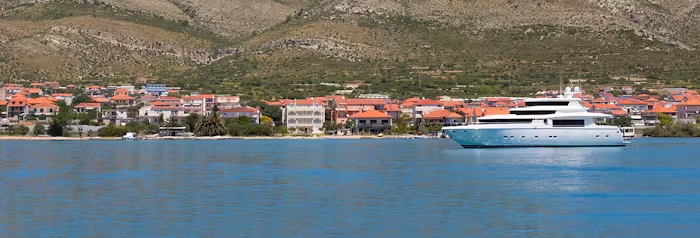
BOATERS BLOG
According to the U.S. Coast Guard’s “Boating Statistics 2008,” the most recent year available, there are almost 13 million registered recreational boats in the United States. While overall boating fatalities slightly increased from 685 in 2007 to 709 in 2008, there were other key casualty factors related to boating safety activity. Approximately 4,800 boating accidents were reported, a slight decrease from nearly 5,200 in 2007, and close to 3,400 people required medical treatment beyond first aid, a slight decrease from nearly 3,700 in 2007.
To stay safe, please keep in mind these boating tips from NBOA Marine Insurance:
- Always wear a life jacket and insist that your crew and guests do the same. Approximately 70 percent of all fatal boating accident victims drowned in 2008.1 Ninety percent of those who drowned were not wearing a personal flotation device (PFD) or life jacket. Always have an adequate supply of personal flotation devices (PFDs) aboard. Make sure that children are wearing appropriate life jackets that fit correctly. Drowning was the reported cause of death for approximately 63 percent of the children who perished in 2008, a 13-percent increase from 2007 . Overall, fatal accident data suggests that nearly 460 lives could have been saved if boaters had worn their life jackets. In cold water areas, life jackets are even more important. A fall into water colder than 60 degrees (Fahrenheit) can induce “cold shock” – a sudden gasping for air that can increase the risk of drowning, especially in older people. Hypothermia is a cold-water danger, too.
- Never drink alcohol while boating. In 2008, alcohol was either a direct or indirect contributing factor in nearly 21 percent of all boating fatalities. Stay sharp on the water by leaving the alcohol on dry land.
- Take a boating safety course. About 90 percent of all reported boating fatalities in 2008 occurred on boats where the operator had not completed a boating safety course. You may even qualify for a reduced insurance rate if you complete a safety course.
- Stay in control by taking charge of your safety and that of your passengers. Boaters between the ages of 36 and 55 accounted for the highest rate of the total boating fatalities in 2008.1 Don’t forget that safety begins with you.
- Understand and obey boating safety recommendations and navigational rules. Imagine the mayhem that would result if car drivers disregarded highway traffic laws. Know and understand boating safety procedures and rules of navigation before taking to the water, and practice them without fail.
- Operate at a safe speed and always maintain a careful lookout. Overall, operator inattention, carelessness/reckless operation, operator inexperience and excess speed were significant contributing factors in virtually all reported accidents. 1 Know your boat’s limitations as well as your own. Take note of visibility, traffic density and the proximity of navigation hazards like shoals, rocks or floating objects. Don’t invite a collision by going faster than is prudent.
- Check the weather forecast. A calm day can quickly turn ugly on the water. Keep an eye out for changing weather conditions and stay on top of the forecast while boating. Promptly heed all weather and storm advisories.
- Have your vessel checked for safety—for free! The U.S. Coast Guard Auxiliary offers Vessel Safety Checks at no cost. Coast Guard Auxiliary staffers will check your boat’s equipment and provide information about its use, safety procedures and applicable regulations. Unsafe boats are a threat to all recreational boaters. Make sure your vessel is as safe as possible. Carry flares at all times.
- Use a carbon monoxide detector. All internal combustion engines emit carbon monoxide (CO), an odorless, colorless, poisonous gas that can kill in minutes. Carbon monoxide poisoning caused 11 boating deaths in 2008.
- File a float plan. The U.S. Coast Guard recommends that you always tell a friend or family member where you plan to go and when you’ll be back. Make it a habit before leaving on any boat trip. The proper officials can be notified promptly if you don’t return when expected.
NBOA Marine Insurance specializes in boat insurance, marine finance, marine towing, safety information, and much more. To learn more about NBOA, visit www.nboat.com or call an agent directly at 1-800-248-3512.